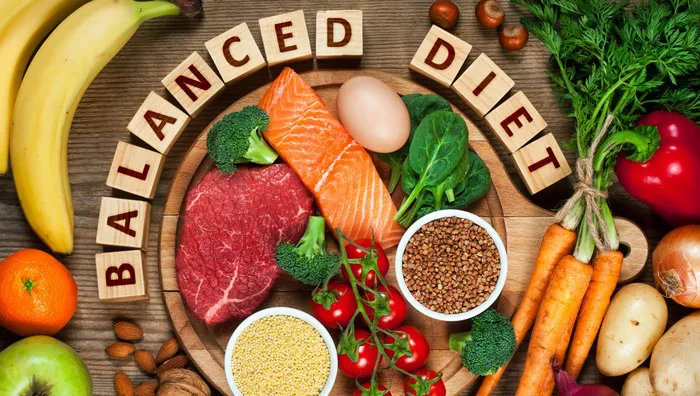Pregnancy is a transformative and special time in a woman’s life. Along with the joy and anticipation comes the responsibility of ensuring a healthy and well-nourished pregnancy. Eating a balanced diet during this crucial period is vital for the growth and development of the baby, as well as the overall well-being of the mother. In this article, we will discuss the key nutrients and food groups that should be a part of a pregnant woman’s daily diet.
1. Balanced Macronutrients
Macronutrients, including carbohydrates, proteins, and fats, form the foundation of a healthy diet during pregnancy. They provide the necessary energy and building blocks for the growing fetus. Incorporating a good balance of these macronutrients is essential.
Carbohydrates: Opt for complex carbohydrates such as whole grains (brown rice, quinoa, whole wheat bread), legumes, and starchy vegetables. These provide sustained energy and essential fiber.
Proteins: Include lean sources of protein such as poultry, fish, beans, lentils, eggs, and dairy products. Protein is crucial for the development of the baby’s organs and tissues.
Fats: Focus on healthy fats like avocados, nuts, seeds, and olive oil. These provide essential fatty acids necessary for the baby’s brain development.
2. Abundant Fruits and Vegetables
Fruits and vegetables are packed with essential vitamins, minerals, and fiber, making them vital for a healthy pregnancy. Aim for a variety of colors to ensure a wide range of nutrients.
Leafy Greens: Spinach, kale, and broccoli are excellent sources of folate, iron, and calcium.
Citrus Fruits: Oranges, grapefruits, and strawberries are rich in vitamin C, which aids in the absorption of iron and supports the immune system.
Colorful Vegetables: Carrots, bell peppers, sweet potatoes, and tomatoes offer a diverse array of nutrients such as vitamin A, vitamin C, and potassium.
3. Calcium and Vitamin D
Calcium and vitamin D are crucial for the development of the baby’s bones and teeth. They also support the mother’s bone health during pregnancy.
Dairy Products: Milk, cheese, and yogurt are excellent sources of calcium. Opt for low-fat or non-fat options.
Leafy Greens: Collard greens, bok choy, and broccoli are calcium-rich alternatives for those who prefer a non-dairy diet.
Fortified Foods: Certain cereals, plant-based milk, and orange juice are often fortified with calcium and vitamin D.
4. Iron-Rich Foods
Iron is an essential mineral that aids in the production of red blood cells and helps carry oxygen to both the mother and the baby.
Lean Red Meat: Beef and lamb are excellent sources of easily absorbable heme iron.
Poultry: Chicken and turkey provide a good amount of iron and protein.
Legumes: Lentils, chickpeas, and beans are plant-based sources of iron and also offer fiber and protein.
Leafy Greens: Spinach and kale are not only rich in iron but also high in folate.
5. Omega-3 Fatty Acids
Omega-3 fatty acids, particularly DHA (docosahexaenoic acid), are critical for the baby’s brain and eye development.
Fatty Fish: Salmon, trout, and sardines are excellent sources of DHA. However, pregnant women should be cautious of consuming fish with high mercury levels and limit their intake.
Chia Seeds and Flaxseeds: These seeds provide plant-based omega-3 fatty acids.
DHA Supplements: Consult with your healthcare provider about taking DHA supplements derived from algae.
6. Hydration
Staying hydrated is essential during pregnancy as it supports the formation of the placenta, amniotic fluid, and helps prevent common pregnancy discomforts like constipation and swelling.
Water: Aim for at least 8-10 cups of water per day. Carry a reusable water bottle for easy access.
Herbal Tea: Opt for pregnancy-safe herbal teas like ginger, peppermint, and chamomile.
Fruit-infused Water: Add slices of citrus fruits, berries, or cucumber to your water for a refreshing twist.
7. Healthy Snacking
Snacking is an excellent opportunity to fuel your body with additional nutrients and keep your energy levels stable throughout the day.
Nuts and Seeds: Almonds, walnuts, pumpkin seeds, and chia seeds are nutrient-dense options.
Fresh Fruit: Enjoy a piece of fruit like apples, bananas, or grapes for a natural energy boost.
Greek Yogurt: Choose plain, unsweetened yogurt and add berries or a drizzle of honey for sweetness.
Whole Grain Crackers: Pair them with hummus, guacamole, or nut butter for a satisfying snack.
Conclusion
Eating a well-balanced and varied diet during pregnancy is crucial for the health and development of both the mother and the baby. Remember to consult with your healthcare provider or a registered dietitian for personalized advice and recommendations based on your specific needs. Embrace the opportunity to nourish your body and enjoy this special journey by choosing nutrient-dense foods that will support a healthy pregnancy from conception to birth.



























